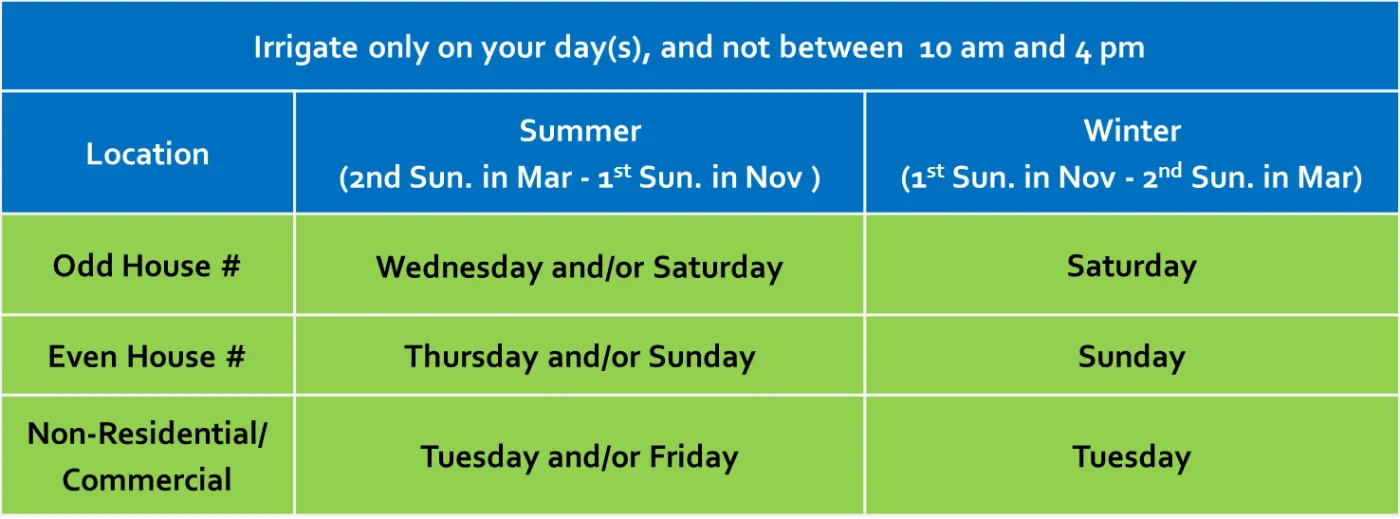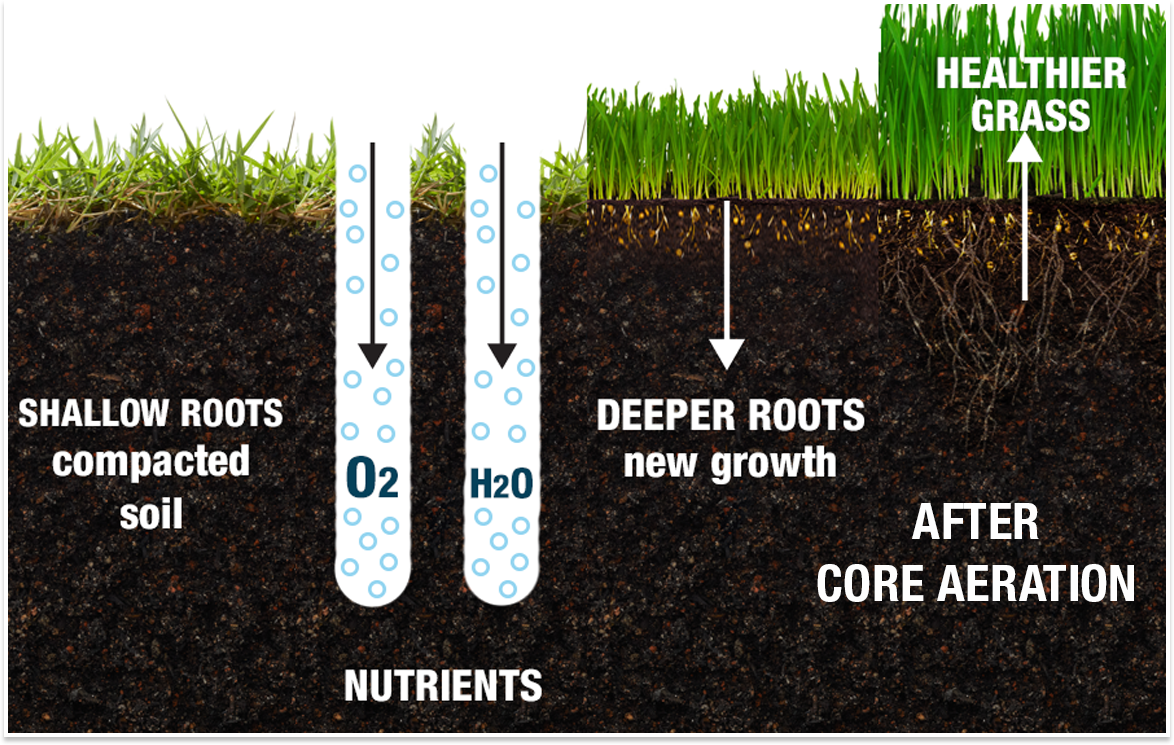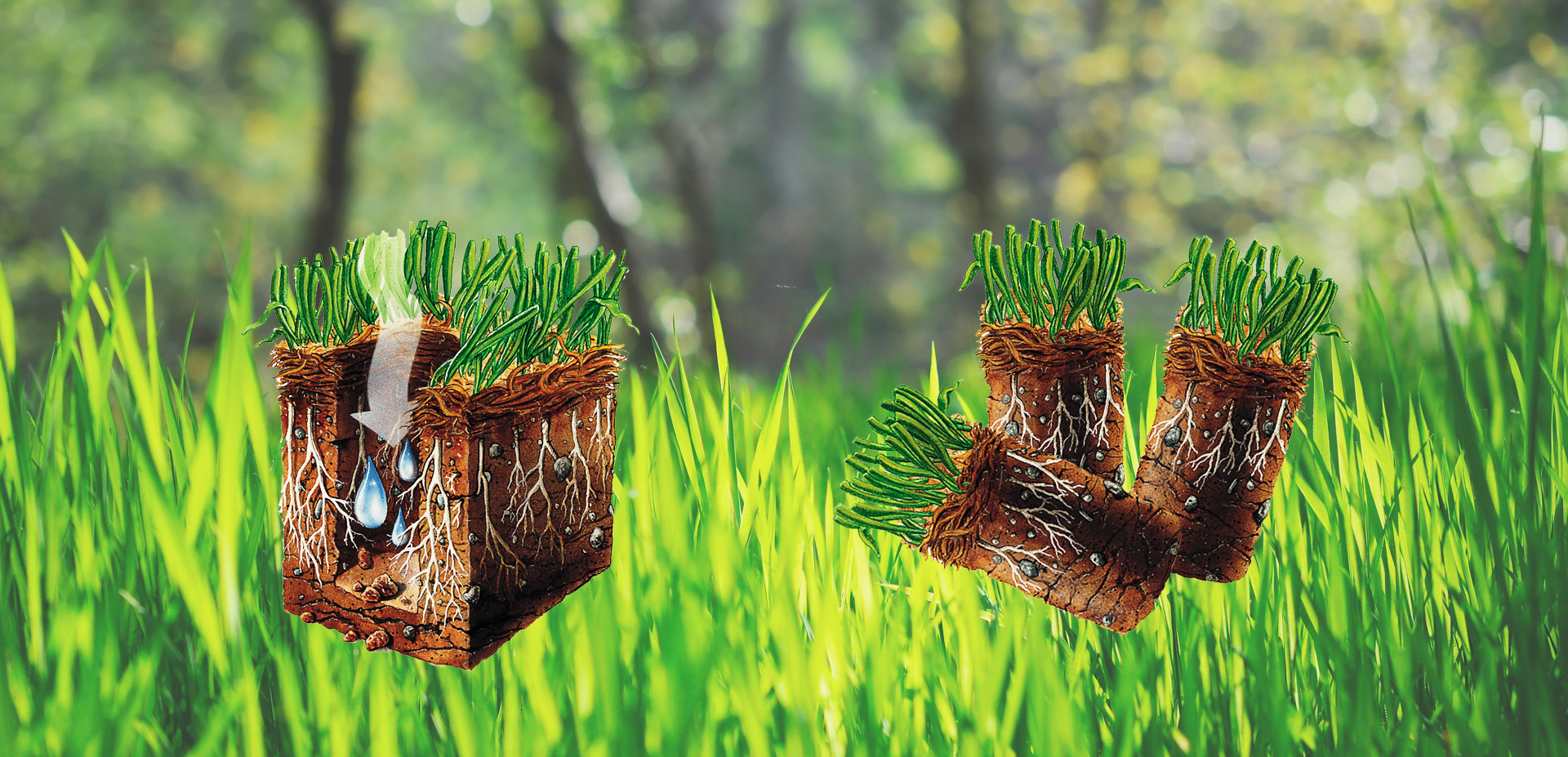Spring marks the start of a new growing season. It's time to get out there and tackle some spring lawn fundamentals to set you and your grass up for success before season fully kicks into gear. Putting in a little extra work now is going to mean less time, frustration, and possibly even money spent later on trying to rescue your lawn. Do what you can to build a strong lawn foundation this spring, it's worth it.
PREP YOUR GAINESVILLE LAWN LIKE A PRO
Clear off your turf
- Remove any leaves or debris on the lawn. Blowing is preferred to raking (to not pull at stolons) but lightly raking will do. This will allow for quicker soil warm up and ensure enough sunlight reaches your grass.
Install Plugs or Sod in Bare spots
- Fill in your lawn's bare areas. Patching bare spots will help prevent weed growth and will give you a thick, full lawn as the plugs/sod spreads. Very few of our grass types are seedable, so St. Augustine and Zoysia have to be plugged or sodded. As those plugs grow in, they will crowd out weeds and need less weed control naturally.
Fine tune your irrigation system
- Start with a sprinkler system check, or a "wet check," which should be done several times annually. This helps assure you aren't wasting water on paved surfaces and plants are getting proper coverage. Make sure all sprinkler heads are functioning, reaching their target range, and aren’t blocked by plant growth or debris. Keep an eye on your sprinklers as the season goes on to stay on top of any problems - because improper irrigation is where most pests and diseases start.
Set Your Sprinkler Timer for Spring
- Your Gainesville Sprinkler system should've been turned down to 1 day per week or less for winter, but spring is Gainesville Landscape's driest season. Watering properly over the next 3 months will set your lawn up for major success this year. Bump your watering days to 2 days per week (Depending upon address below) and make sure to increase your watering times too.

Sharpen your Mower blades
- Dull mower blades tug on grass roots and stress grass blades out . Also, a well-sharpened mower blade will chop grass clippings finely, making for easy decomposition to enrich the soil. That’s if you’re grass-cycling, if you aren’t you should definitely check it out (free nutrients!). For an average lawn, blades should be sharpened every couple months. Why not start with spring?
Watch for Weeds through Season
- Young weeds are weaker and easier to tackle than grown up weeds. Whether you are pulling them out or using our lawn health service, early weed control is always better than letting them get established. Spring is a great time to get in the habit of looking out for weeds. Once a month assessing your lawn would probably go a long way to keeping them in check.
Should I aerate my lawn or not?
- If your soil is compact and it’s affecting your grass’ ability to grow, Spring is a great time for Gainesville aeration. Aeration helps soils to allow oxygen, water, and nutrients to penetrate past the topsoil and reach the root zone, but aeration is not for all lawns. Liquid Aeration is actually proving to last longer and have better effects on your lawn than manual core aeration, and we are always testing new products coming out on the market to increase your lawn health and mnimize costs associated with doing so. Gainesville Liquid aeration has proved as one those examples.
Frequently Observing Your Lawn
-
Lawn problems usually can be reduced greatly when they are spotted and resolved early. Spending regular time in your lawn making observations can help you and your Gainesville lawn spraying company stay ahead of lawn issues.


